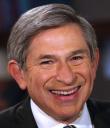Oil prices are surging to record highs as the weakening U.S. dollar drives investors to dump money into commodities.
Light, sweet crude for May delivery rose 67 cents Wednesday to $114.46 a barrel in electronic trading on the New York Mercantile Exchange by midday in Europe. On Tuesday, the contract had risen to $114.08.
In London, Brent crude contracts are up 69 cents to $112.27 a barrel on the ICE Futures exchange.
The oil increases are being influenced by severe weakness in the dollar. The dollar hit a new record low of $1.5966 versus the euro in early Wednesday trading.
The dollar is plumbing new depths as wholesale inflation came in triple what was expected and ahead of new consumer data to be released Wednesday.
Analysts said growing investor demand for commodities — which have performed better than other financial instruments — also helped prop up prices.
“This is really driven by investors purchasing oil because returns have simply outpaced those of stocks and bonds,” said Victor Shum, an energy analyst with Purvin & Gertz in Singapore. Shum said he didn’t think supply and demand fundamentals were that strong, but added that “oil’s price rise seems unstoppable.”
Traders were awaiting the release of U.S. government data later Wednesday on the state of America’s petroleum supplies. Last week’s EIA report showed an unexpected drop in crude inventories, which started oil on its way to several records.
The U.S. Energy Information Administration was expected to report later in the day that crude inventories grew 1.5 million barrels last week, according to a survey of analysts by Platts, the energy research arm of McGraw-Hill Cos.
Click here for full story
Filed under: Business | Tagged: Business, depression, dollar, economics, gasonline, high gas prices, Iran, Iraq, oil, OPEC, persian gulf, petroleum | Leave a comment »


 There have been five agonizing years of this war in Iraq. Five terrible
There have been five agonizing years of this war in Iraq. Five terrible
You must be logged in to post a comment.